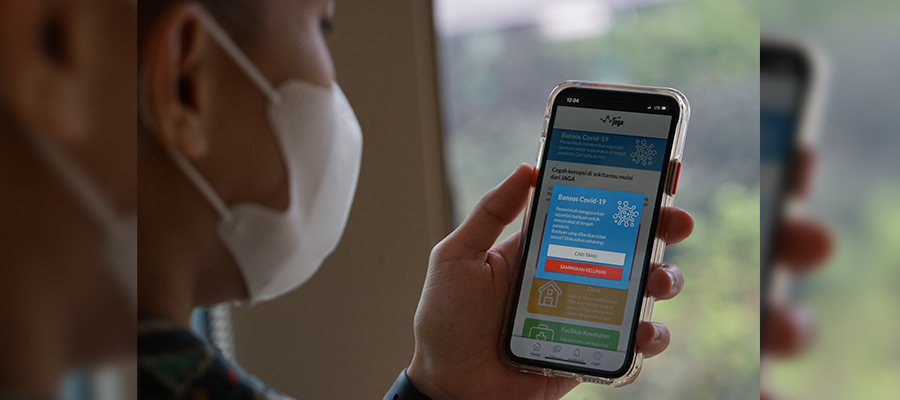The Corruption Eradication Commission has designated eight instruments of intervention to improve the local governance in the country as an effort to prevent any corruption in the local level.
The Acting Spokesperson of KPK Ipi Maryati stated that the eight instruments include the planning and budgeting of the Local Revenue and Expenditure Budget (APBD), the procurement of goods and services, the establishment of integrated one-stop service, the management of state civil apparatus, the improvement of government internal supervisory apparatus capacity, the optimization of local revenues, the governance of village funds, and the management of local assets.
Maryati claimed that the intervention is focused on the eight areas identified as the corruption prone areas by the commission.
According to her, KPK, through its Regional Coordination unit, has encouraged local governments to improve the governance in their regions by implementing the eight instruments of graft prevention summarized in a Monitoring Centre for Prevention (MCP) system.
“The instrument of graft prevention in the sector of goods and services procurement, for example, begins with the implementation of e-planning and e-budgeting. Afterwards, the budgeting is carried out by the implementation of e-procurement and e-catalog. Meanwhile, licensing will be conducted through the integrated one-stop service,” explained Maryati.
Maryati also said that KPK has requested local governments to strengthen the regional monitoring. The focus of this are, among others, the promotion of budget increase for supervision and the development of auditors’ competence as internal supervisory apparatus.
“Without sufficient monitoring, the provision of Rp1 billion village funds to more than 74,000 villages in Indonesia is prone to abuse. Therefore, KPK encourages the establishment of transparent prevention systems by publishing the information on village funds, implementing village financial system (siskeudes), and carrying out the monitoring function,” she said.
Maryati asserted that human resource management is no less important because the commission still found graft practices in the promotion, rotation and transfer of state civil apparatus (ASN). To curb these illegal practices, KPK encourages regional governments to take corrective steps in their apparatus management, such as by conducting job evaluations; creating performance applications; providing additional income for employees; requiring assets and gratuities reports; as well as regulating the process of recruitment, promotion, rotation, transfer and dismissal of ASN.
“Graft prevention is also aimed at preventing state losses. One of the sources is the ineffective local taxes collection. The local revenues optimization instrument is designed to maximize the original revenue of the region, “she explained.
Similar condition applies to the local assets in the form of land, buildings and vehicles. Maryati said that poor asset management can result in the loss of regional assets due to being controlled by or involved in a dispute with third parties. For this reason, KPK encourages stricter control over local government assets by issuing valid certificates and encouraging assets recovery from third parties.
Until recently, through the efforts to control local assets, the local governments have succeeded in recovering assets worth at least Rp33.6 trillion. Reconciliations of lands and buildings worth Rp21 trillion between local governments due to the process of regional expansion have been settled administratively. In addition, through the national-scale local asset certification program, held in collaboration with the BPN, KPK encourages the certification of assets. Today, only about 20% of local assets have been certified.
Monitoring of the progress of the implementation of these eight instruments is carried out through the Corruption Prevention Network (JAGA.ID), which can be accessed from https://jaga.id. The information on the local progress, comparisons with other regions including the achievements of each prevention instrument are accessible to the public on the website. The goal is to improve the control mechanisms and to encourage community participation.


